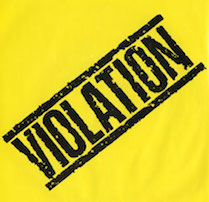In Massachusetts, probation violation hearings differ significantly from trials and some other proceedings in criminal cases. The Supreme Judicial Court made clear in Commonwealth v. Durling, 407 Mass. 108 (1990) that probation violation proceedings do not afford to the defendant the same protections as one gets at trial. One thing that was unclear until recently was whether or not a probationer has the right to confrontation at a probation violation hearing. Following the decision in a recent SJC case, Commonwealth v. Hartfield, the answer is seeming yes. The facts of that case and its holding are explored below. Continue Reading
Articles Posted in Probation Violations
New Rules For Massachusetts Probation Violation and Detention Hearings
Starting in September Massachusetts will be implementing new rules for probation violation and detention hearings. The proceedings effected are what are currently known as preliminary probation hearings and final probation surrender hearings. The former will be called a probation detention hearing. The latter will be referred to as a probation violation hearing. A new set of procedural rules will be enacted and evidentiary standards have been somewhat modified. These rules will apply to the Boston Municipal Court and the Massachusetts District Courts. The rules changes are subtle. They do however have more organized and just feel about them. Some of these rule changes are discussed below. Continue Reading
Defending Surrender Hearings and the Dishonest Probation Officer
Anyone on probation in Massachusetts knows just tenuous your situation can be. Any new arrest is grounds for being surrendered. A failure to comply with the conditions of probation will result in a surrender notice being issued. While the large majority of probation officers are hard working and hones there are a few who are not. These people are dangerous. You have to be mindful of the vindictive dishonest probation officer who thinks his job is to put people in jail rather than monitor their probation or help them overcome the problem that landed them in criminal court. Continue Reading
 Massachusetts Criminal Defense Attorney Blog
Massachusetts Criminal Defense Attorney Blog




